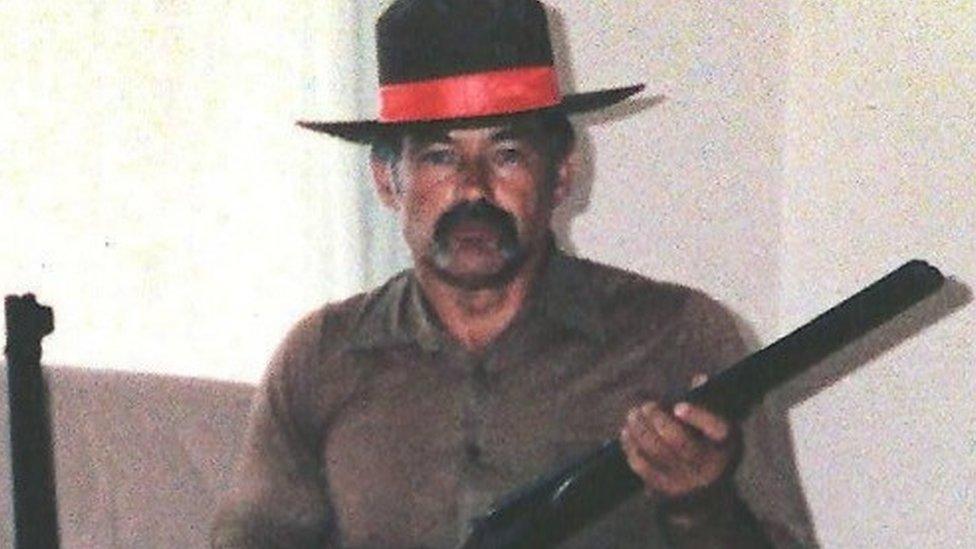Ivan Milat: Australia's 'backpacker killer' and unanswered questions
- Published
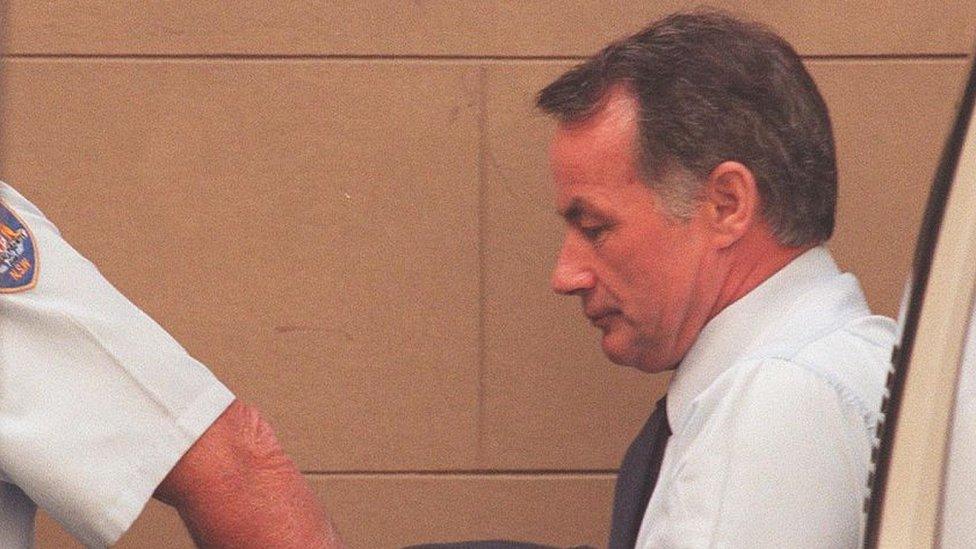
Ivan Milat has been called Australia's worst serial killer in modern history
Ivan Milat, who died on Sunday, is one of the most notorious serial killers in Australia's history.
Between 1989 and 1992, he kidnapped and murdered at least seven victims aged 19 to 22 - three Germans, two Britons and two Australians.
The backpackers were picked up when hitchhiking on a long stretch of road between Sydney and Melbourne - some in pairs, others alone. Each was taken into the Belanglo State Forest in New South Wales.
Forensic reports showed bullet and stab wounds on the bodies of his victims, with evidence suggesting they may not have died instantly from their many injuries.
Once murdered, they were partially buried in a shallow grave, face down, with hands behind their backs.
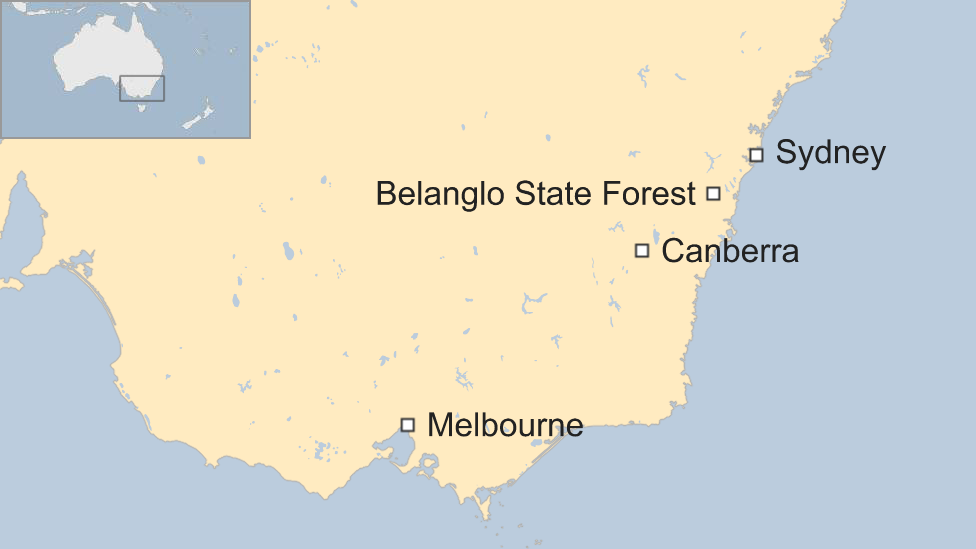
The victims - Caroline Clarke, Joanne Walters, Simone Schmidl, Anja Habschied, Gabor Neugebauer, James Gibson and Deborah Everist - were a deliberate target because of their vulnerability.
"They relied on the goodwill of motorists," says University of Sydney criminology expert Dr Tyrone Kirchengast. "And it was a time before mobile phones - they were completely isolated."
In court, Milat's defence lawyers tried unsuccessfully to shift the blame onto his brother Richard, one of 14 siblings.
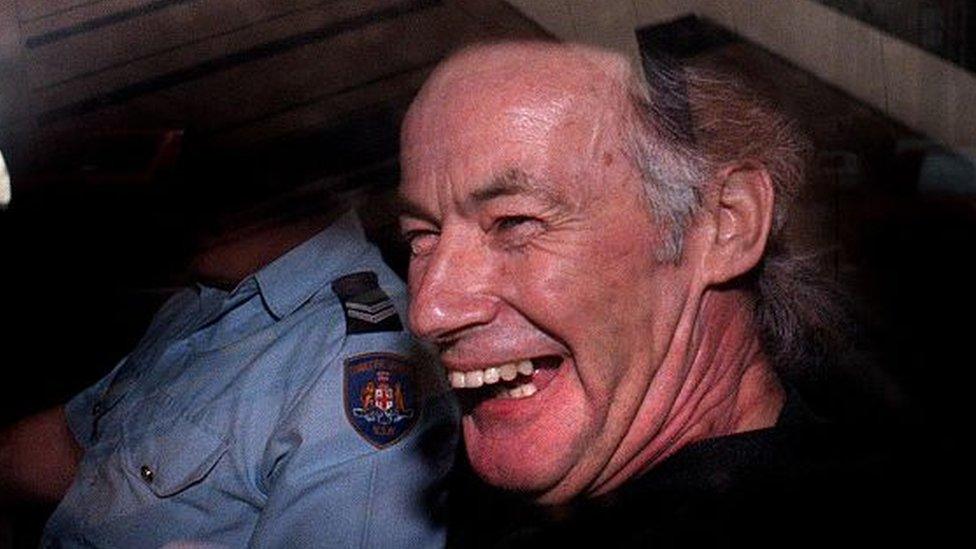
Milat attends an unsuccessful appeal hearing in 1997
Milat and some of his brothers had had trouble with the law and police more than once visited the family's rural farm.
In 1971, two female hitchhikers testified against Milat for alleged rape at knifepoint, but he was acquitted.
Being brought to justice
For years, he escaped detection for the backpacker killings, and very nearly escaped conviction altogether. That was until a British man called Paul Onions changed everything.
Milat had pulled over to pick up hitchhiker Mr Onions in 1990. Seeing a rope and a gun in the car, Mr Onions realised he was in grave danger.
He managed to escape, with Milat in pursuit of him on foot along the Hume Highway, where he ensnared his victims.

Paul Onions leaves court after giving crucial evidence
Mr Onions avoided the bullets Milat was firing and flagged down another motorist, who took him to the nearest police station - in a small town, Bowral.
Mr Onions rushed in to give a report, but he has said police merely handed him A$10 (£5; $7) to get back to the British High Commission in Sydney. The report lay filed in a drawer at Bowral police station for years.
Years later Mr Onions - then back in the UK - saw media reports about the remains of bodies found in Belanglo State Forest.
He called the Australian Federal Police, reminding them of his ordeal. They responded by immediately flying him back to Australia in 1996, where an investigation was under way.
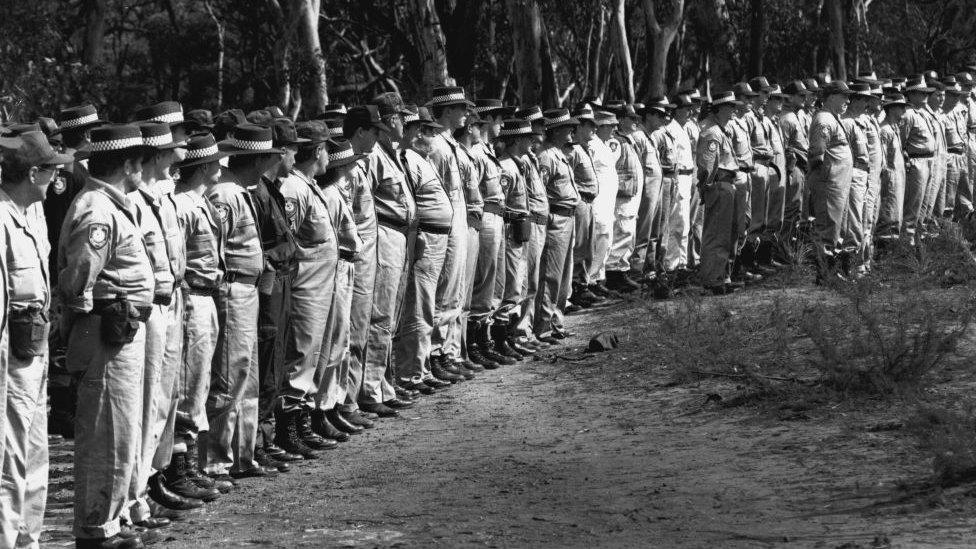
Police search Belanglo State Forest for human remains in November 1993
Media at the time described Mr Onions as the "star witness" in Milat's four-month trial. Mr Onions has since spoken publicly about declining a police reward payment of more than A$200,000 (£110,000; $140,000.)
Strong evidence linked Milat to the crimes, including the personal possessions he kept of his victims, such as sleeping bags and camping equipment. Weapons which fitted the ways he had mutilated his victims were found at his house.
"It's not uncommon for [serial killers] to collect 'trophies' - holding something back from victims," says criminologist Dr Kirchengast. "It's part of the psychopath's overconfidence - the belief they can fool everyone through manipulation or charm."
Milat hired the same lawyer who'd secured his acquittal from the earlier rape case, but fired him after being advised to plead guilty. He pleaded not guilty to all charges and consistently maintained his innocence.
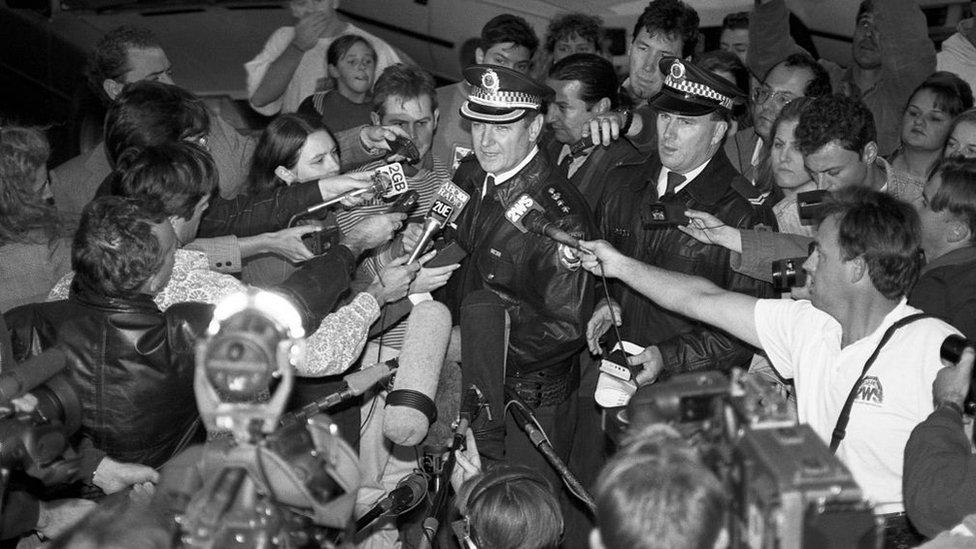
Chief Supt Clive Small at a press conference in May 1994
Milat was sentenced to seven consecutive life sentences without parole, and also convicted of the attempted murder, false imprisonment and robbery of Mr Onions.
Despite one foiled escape plot and unsuccessful appeals, Milat remained in custody until he died of oesophageal and stomach cancer.
Unsolved cases
Former police assistant commissioner Clive Small, who led the Milat investigation, believes Milat committed at least one other murder.
"I'm satisfied the 1987 murder of Peter Letcher was Ivan Milat," Mr Small tells the BBC.
Mr Letcher was aged 18 when his body was found in another state forest in 1988. The case remains unsolved.
"He was shot in the head and stabbed several times in the back," Mr Small says. "Bullets at his murder scene came from the same gun as the murder of some of the backpackers."
Despite police interviewing Milat after his cancer diagnosis about unsolved homicides he has been linked to, there was no deathbed confession.
Speaking in 2006 of her daughter's murder, Patricia Everist said: "Who knows what Deborah could have made of her life? She was a clever kid. I still find it very hard to believe the evil. How could anyone deliberately do that to innocent young kids, snuffing out their lives like that?"
Public fascination with the case has been high. Director of the horror film Wolf Creek Greg McLean said he'd used "elements" of the Milat case in his film because it was more terrifying than anything he could've imagined himself.
Is such continuing interest morbid? Dr Kirchengast believes it's human nature.
"A person has done this who has fallen so far short of what we consider to be normative human behaviour. It even falls short of normal criminality - done for opportunity, gain, status or insult. This person engaged in homicide for their own psychological gratification," he says.
"It's natural that we want to know: what's gone wrong?"
- Published26 October 2019
